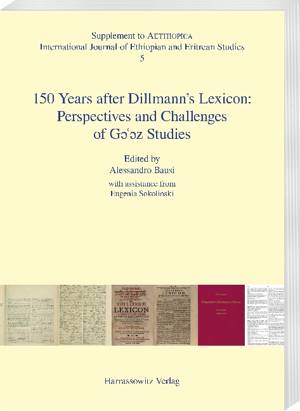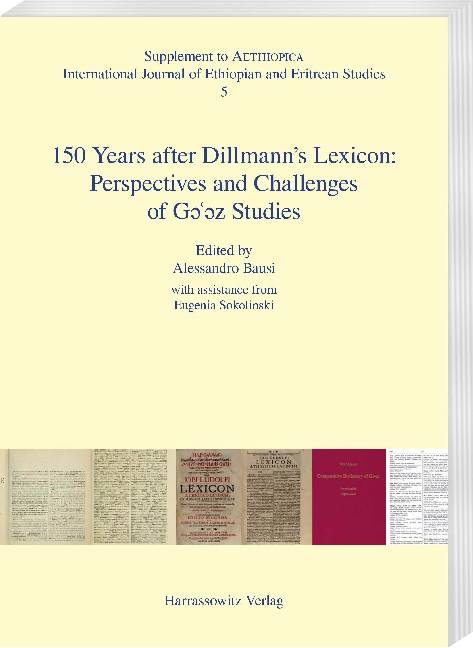
Bedankt voor het vertrouwen het afgelopen jaar! Om jou te bedanken bieden we GRATIS verzending (in België) aan op alles gedurende de hele maand januari.
- Afhalen na 1 uur in een winkel met voorraad
- In januari gratis thuislevering in België
- Ruim aanbod met 7 miljoen producten
Bedankt voor het vertrouwen het afgelopen jaar! Om jou te bedanken bieden we GRATIS verzending (in België) aan op alles gedurende de hele maand januari.
- Afhalen na 1 uur in een winkel met voorraad
- In januari gratis thuislevering in België
- Ruim aanbod met 7 miljoen producten
Zoeken
150 Years After Dillmann's Lexicon
Perspectives and Challenges of Ge'ez Studies
€ 112,95
+ 225 punten
Omschrijving
The volume contains eleven essays which cast a look on the past, present, and future of Ge'ez (Classical Ethiopic) philological and linguistic studies on the occasion of the 150th anniversary of the achievement of the Lexicon linguae Aethiopicae by August Dillmann, published in 1865. Most of the essays were presented at a conference convened by the ERC-project TraCES at the University of Hamburg in November 2015. On the one hand, they focus on the significance and importance of the Lexicon and of its author who was one of the greatest orientalists of the nineteenth century. Dillmann's Lexicon has marked in-depth the development of Ethiopian and oriental studies. It still remains an indispensable tool for the analysis of Ge'ez style and phraseology, even though it has been surpassed by Wolf Leslau's Comparative Dictionary of Ge'ez (1987), with respect to etymology and number of entries. On the other hand, the essays define more precisely which are (besides the obvious updating) the challenges posed by manuscripts, text editions, and epigraphic evidence emerged since 1865, with regard to Ge'ez language, orthography, lexicon and lexicography as well as digital humanities and corpus linguistics. The contributors are Maria Bulakh, Wolfgang Dickhut, Andreas Ellwardt, Serge A. Frantsouzoff, Martin Heide, Susanne Hummel, Manfred Kropp, Eugenia Sokolinski, Agostino Soldati, Cristina Vertan, Stefan Weninger, and Alessandro Bausi, who is also the editor of the volume.
Specificaties
Betrokkenen
- Uitgeverij:
Inhoud
- Aantal bladzijden:
- 238
- Taal:
- Engels
- Reeks:
- Reeksnummer:
- nr. 5
Eigenschappen
- Productcode (EAN):
- 9783447107839
- Verschijningsdatum:
- 9/02/2017
- Uitvoering:
- Paperback
- Formaat:
- Trade paperback (VS)
- Afmetingen:
- 170 mm x 241 mm
- Gewicht:
- 498 g

Alleen bij Standaard Boekhandel
+ 225 punten op je klantenkaart van Standaard Boekhandel
Beoordelingen
We publiceren alleen reviews die voldoen aan de voorwaarden voor reviews. Bekijk onze voorwaarden voor reviews.








